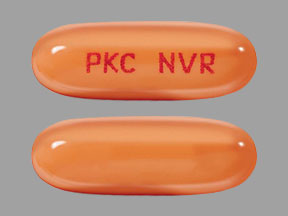Midostaurin and Alcohol/Food Interactions
There is 1 alcohol/food/lifestyle interaction with midostaurin.
Midostaurin Food/Lifestyle
Major Food Interaction
Midostaurin should be taken with food to help with its absorption. Do not consume grapefruit or grapefruit juice during treatment, as it can significantly increase the blood levels of midostaurin. You may be more likely to experience side effects such as nausea; vomiting; diarrhea; swelling; high blood sugar; heart rhythm abnormalities; and impaired bone marrow function resulting in low numbers of different types of blood cells, which can increase the risk of anemia, bleeding problems, and infections. You should seek medical attention if you develop paleness, fatigue, dizziness, fainting, unusual bruising or bleeding, fever, chills, diarrhea, sore throat, muscle aches, shortness of breath, blood in phlegm, weight loss, red or inflamed skin, body sores, or pain and burning during urination. Talk to your healthcare provider if you have any questions or concerns.
Switch to professional interaction data
Midostaurin drug interactions
There are 662 drug interactions with midostaurin.
Midostaurin disease interactions
There are 2 disease interactions with midostaurin which include:
More about midostaurin
- midostaurin consumer information
- Check interactions
- Compare alternatives
- Reviews (5)
- Side effects
- Dosage information
- During pregnancy
- Drug class: multikinase inhibitors
- Breastfeeding
- En español
Related treatment guides
Drug Interaction Classification
| Highly clinically significant. Avoid combinations; the risk of the interaction outweighs the benefit. | |
| Moderately clinically significant. Usually avoid combinations; use it only under special circumstances. | |
| Minimally clinically significant. Minimize risk; assess risk and consider an alternative drug, take steps to circumvent the interaction risk and/or institute a monitoring plan. | |
| No interaction information available. |
See also:
Further information
Always consult your healthcare provider to ensure the information displayed on this page applies to your personal circumstances.


